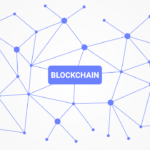In the era of digitalisation, perhaps now tends to be most precious assets data we hold-The core of almost any data that matters are in network devices today, from personal information and financial records all the way to everyone’s IP stuff as well as company secrets. But this interconnected world also creates additional challenges to face: malware and hackers like ransomware and pharming.Gaining strong cybersecurity defenses for our digital assets is like home security: it is essential to protect what you own. This article is aimed at individuals and businesses alike, introducing critical cybersecurity strategies and offering practical advice for building a digital fortress to protect oneself from malicious attacks.Secure: Keys to a Good Cybersecurity Defense If you want to defend yourself or your business from attack, here are some basic concepts that everyone should learn. Good Audience: This kind of thing is fairly easy and will not take long at people in general (individuals to Cantonese-speaking public figures). Passwords and Authentication: Passwords are now the first line of defense, weak ones are easily cracked. Use strong and unique passwords for each online account, consider employing password managers to generate and securely store them. Multi-factor authentication(MFA) uses text messages as the“second factor” of identification step after you’ve input your password correctly. Regularly privacy checked: From an attacker’s point of view, the starting point for any attack is a software vulnerability. In order to avoid easily being the weak link for using common vulnerabilities like this as entrance points into your system, and looking after yourself online effectively with computers; always install the security patches that come out. It’s Small Things That Support Safety: Use strong passwords or PIN numbers to secure your devices (laptop, smartphone, tablet). Install robust security software that incorporates antivirus,anti-malware and firewall protection. Use caution in what you share on the internet, especially when using public Wi-Fi networks. Personnel Training (for businesses): Human error is a major cause of security incidents. However, if employees regularly given security awareness training, they become familiar with computer viruses, phishing scams, social engineering tactics and best practices when dealing with personal details online. Building on a Foundation: Advanced Measures for Security In addition to these core strategies, follow these steps to buttress your cybersecurity as much as possible. Data Encryption: Providing a layer of security for sensitive data is to encrypt it while it is at rest and while it is transmitted. It is unassailable once encrypted. Regular Backups: Regularly back up your data to a safe, offsite location. In the event of cyberattack or hardware failure, this recovery from ‘AS INSTRUCTIONS SENT’ enables you to return to the originals. Firewalls and Access Control: Enforce a firewall to filter incoming and outgoing network traffic and block any suspicious activities. With information of a sensitive nature, adopt a least-privilege policy so that only those who need it can access it–in other words, everyone’s given mandatory permission and made to conform to their roles. Security Monitoring and Incident Response Continually monitor your network and systems for suspicious activities. Create a comprehensive incident response plan. Such plans protect against heavy waters when a cyberattack is launched and damage can be minimized. People v Business: The Right Approach In Basics are: while principles for is everyone is the same, personal and corporate cybersecurity have specific needs and ways of doing things: For Users of Personal Computers: Be particularly careful about safeguard your personal information, keeping good hygiene on passwords and securing you online practices (never click on Internet links of unknown origin, download files from suspicious sources or use public Wi-Fi to directly send sensitive or private information between friends). For Corporate Firms: Stricter access controls, data encryption and policies tailored to fit each employee’s specific responsibilities and duties are needed. Also there is the question of compliance with industrial laws or standards. Companies-or, in the case of partnerships, shared owners-have their own secrets to safeguard. The Changing Face of Threats: Always be Vigilant With network security and internet security, your defenses cannot be built in one go and left there. It cannot be a past-echoing world but one of abiding by the tip of your toes or change either way. All these criminals are sissies, but we Japanese are still controlling our own destiny. Staying Up-to-speed: Continuing sources of reliable cybersecurity news should be subscribed to, and alerts received for the latest security threats and system vulnerabilities. Social Engineering: Be on the alert for unsolicited e-mails, calls or mail even if it looks genuine and seemingly arrives from reputable sources. Do not give out any personal information and always be careful about clicking links that don’t look right to you. CAUTION With Free Wi-Fi: Never make sensitive transactions on public Wi-Fi. Use a VPN (Virtual Private Network) to encrypt your internet traffic if necessary. Security Promotion Moreover, companies must continue to undergo large smart being diverted into the hands of hackers because the business environment is such that for every item stolen they have little remedy but to chalk it up as a loss incurred against countless new equipment installed with each updated level of security–such ingrained attitudes persist among co-workers. The vital task for tomorrow is for society to maintain one that respects security! “) Security is a company’s life. Through its riches is produced culture that cherishes throughout all events. This means, among other things, of course, having businesses able to give out messages about data security and how to keep it safe in order not only to reduce the hazard impact to employees on their own jobs-saying takes place.

Posted inCyber Security

